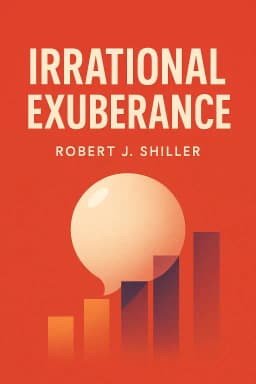Economics & Money

Naked Economics
Charles Wheelan
An accessible and engaging guide to understanding the core principles of economics and their relevance to everyday life. Stripped of jargon and complex equations, this book offers a clear and insightful exploration of economic concepts, from market forces to globalization, and their impact on society.

The White Coat Investor
James M. Dahle
A comprehensive guide to personal finance and investing specifically tailored for doctors and other high-income professionals. Learn how to convert your income into wealth, avoid financial pitfalls, and achieve financial independence, even with increasing educational costs and decreasing reimbursement rates.

One Up On Wall Street
Peter Lynch
Peter Lynch, one of the most successful investors of all time, shares the secrets of his success in "One Up On Wall Street." Lynch argues that anyone can become an expert investor by using their everyday knowledge and experiences to identify promising companies before Wall Street discovers them. With his accessible style and practical advice, Lynch empowers readers to take control of their financial futures and achieve market-beating returns.

The Latte Factor
David Bach
Discover the three secrets to financial freedom in this inspiring story about living your dreams now. Learn how small changes can lead to massive transformations in your financial future and unlock a life of joy and abundance.

Unshakeable
Tony Robbins
Discover the secrets to financial freedom and peace of mind in an uncertain world. Drawing on insights from the world's top financial minds, Tony Robbins provides a concise playbook to help you navigate market volatility, avoid costly mistakes, and achieve lasting prosperity, regardless of economic conditions.

Irrational Exuberance
Robert J. Shiller
A comprehensive analysis of speculative bubbles in the stock, bond, and real estate markets, exploring the psychological and cultural factors that drive irrational investor behavior. This revised and expanded edition examines historical trends and offers insights into understanding and managing market volatility.

Your Infinite Power to Be Rich
Joseph Murphy
Unlock the secrets to attracting wealth and abundance into your life with this timeless guide. Learn how to harness the power of your subconscious mind to achieve financial success and create a life of prosperity and fulfillment. Discover practical techniques and inspiring stories that will transform your mindset and pave the way for a richer, happier you.

The Total Money Makeover
Dave Ramsey
Discover a proven plan to transform your financial life! Dave Ramsey provides a step-by-step guide to get out of debt, build wealth, and achieve financial peace. Learn how to change your behavior, confront your financial fears, and take control of your money for a brighter future.